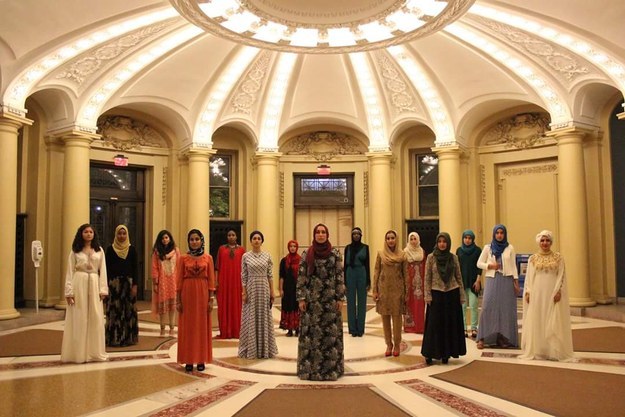This morning both of my daughters carefully picked out red shirts to wear to school this morning. They told me their teachers had told them to wear red to school. “It’s International Women’s Day, Mama! Everyone is wearing red. Even the boys have to. Even if they don’t want to because they’re boys.”
I asked them both what wearing red today meant to them. They bounced back with few well-rehearsed and well-taught girl-power-light lines. (Thank you Commodification of Feminism for the slogans, I guess.) Then Daughter #2 said the thing I knew would come out of one of their mouths soon enough. (Thanks yet again, Feminism Light, Inc.) “Mama, in the old days women didn’t have rights. But now women can do whatever we want, so we wear red!”
Oh my sweet baby girls. Here we come to yet another moment where your mother is directly asking God for help.
How is a mother to respond to this completely heartbreaking teaching moment – one that was handed to me on International Women’s Day – a day this year that has been aligned with the Women’s March ‘Day Without Women’? The ‘how-to-mother‘ options sat before me. Do I go light and tell them, “Well, yes, thankfully a lot has changed and we have some very brave women we owe that to, but there’s a lot more work to do,” and then maybe touch on things like Equal Pay for Equal Work and how this country still has never had a female president?
Or do we go there and I mean really, really go there? This being my girls and this being me, we went there.
I told them that as their mother what I wished most for them was a world in which they would never encounter anything other than a fair playing field. And, that they could indeed follow their passions and do whatever they wanted to do with their lives. But, that it wouldn’t be possible if we didn’t talk about what reality is like – what work and economic security actually means – for many women today, especially the girls and women no one really wants to talk about. Including us. The story of work in America – and how it impacts women and children particularly – is our story too.
I told them why I was going to work today. I told them that there’s no way their Mama could take a day off work – not right now – and that no, neither I, as a single mother, or their beloved caregiver could take a day off from the duties at home either. We talked about how our story – about what their Mama’s work means for our lives – is also deeply connected to the stories of other women in this country and the world over.
Beyond the she-roes, there are so, so many important stories to hear about what work means – what it really means – for the women who live in our South Shore neighborhood, for the women in the west side of Chicago, for women in Pakistan where their grandparents immigrated from, for women who work three part-time jobs, and for women at the cusp of leadership who work in the halls where decisions are made but can’t quite seem to break through in the same way that men do.
We talked about how none of us are equal until our bodies are safe and that what happens to our bodies are our decision because anything less tells us that we don’t know our own bodies. We talked about how none of us are equal until every little girl and every woman has access to quality healthcare options, can pursue a good education, and has the opportunity to find a job that sustains her and her family. None of us are equal until every single one of is no longer told that we have be pretty to even be seen. None of us are equal until the same doors that are open to our male peers are open to us – to all of us. That nothing matters until women are actually able to pursue their hopes for their lives. That nothing matters until there are real opportunities for all women to do this.
And, perhaps most of all, that our stories and narratives about ourselves are what matters most. As girls and women, we will not be equal until what has happened to us is no longer the index of what defines us. That we deserve to be seen as full and complete beings, with complicated and contradicting lives, desires, and hopes. That what I want for them as their mother is not just to pursue whatever kind of work they want to do – that what I want for them is to be seen with eyes that see nuance and many, many shades of grey.
We talked about how we are not what happens to us. Or what happened to us. Every girl deserves a chance to create a complex narrative of self that isn’t just about what happened to her – as defined by someone else. And even when that horrible thing happens – because these things happen in a world full of obstacles – she deserves to be seen as far more than her personal tragedy.
She is more than her sexual assault, she is more than the abuse inflicted on her, she is more than a refugee, she is more than a woman who wasn’t given the promotion she deserved, she is more than the girl who had to make a very difficult decision about her own body, she is more than a woman who felt she had nothing important to say in yet another meeting, she is more than a woman who had to cross borders without legal papers to find a safe home, she is more than the girl who was led to believe that if she only looked a little prettier she would get somewhere, she is more than what she wears or doesn’t wear, she is more than someone’s teenage dream, she is more than a token, she is more, so much more.
We are not what happened to us. We are instead complicated narratives that are about our efforts in response to what happened to us. We are our very complex, very human stories as told by us. But to do that and be that, we need to be merciful to ourselves and to others, especially those who feel invisible.
There was so much more to say but with a glance at the clock we realized we were going to be late to school and I was going to be late going into work. Daughter #1 responded with, “Well, I guess it’s okay if we’re late because we are protesting, aren’t we?”
Yes, baby girls, yes we are.
Samar Kaukab is an altM columnist and Advisory Board member.
Photo Credit.




